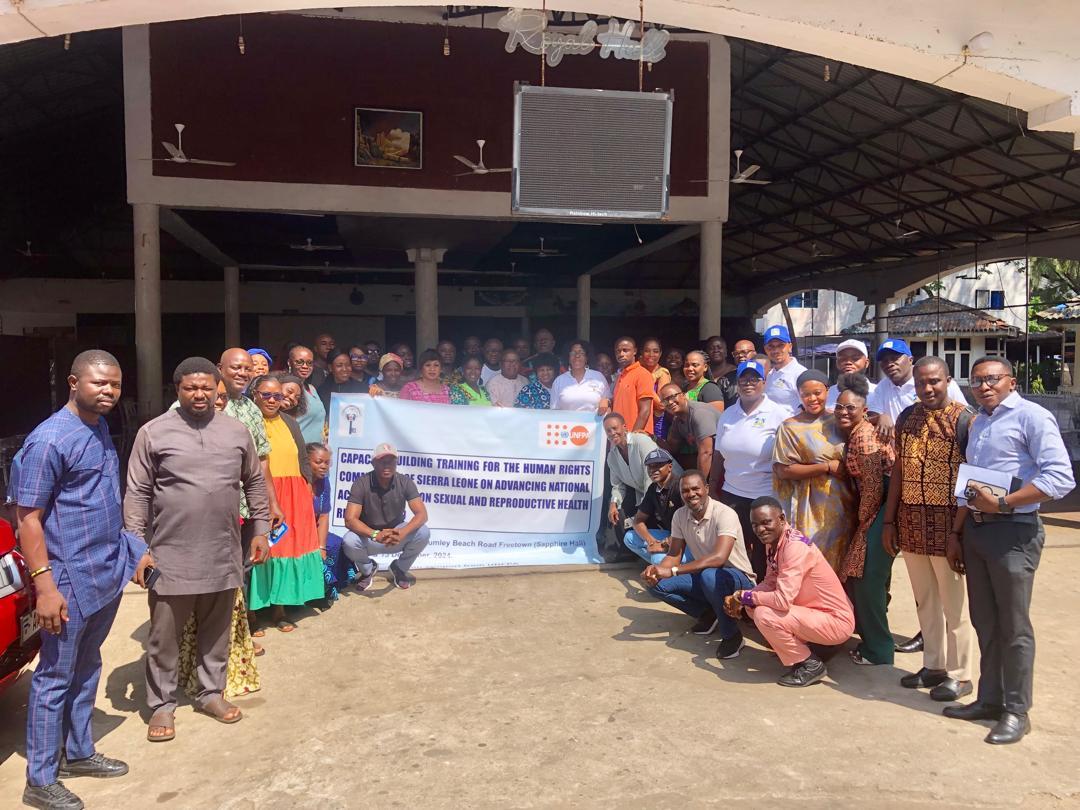In a bid to ensure effective monitoring of the fulfilment of Sexual Reproductive Health Rights (SRHR) and national efforts for the elimination of Gender-Based Violence (GBV) and harmful practices, the Human Rights Commission of Sierra Leone (HRCSL) in collaboration with UNFPA on Thursday 12th and Friday 13th December, 2024 trained Commissioners and staff at Family Kingdom, Aberdeen in Freetown.
The objectives were to jointly assess the SRHR, gender equality and GBV situation in Sierra Leone from a human rights perspective; Provide an overview on UNFPA’s Toolkit for advancing human rights-based universal sexual and reproductive health and share UNFPA’s Guide to the Human Rights Commission of Sierra Leone and support the development of an Action Plan to enable the Commission to monitor, assess, and advocate for policies and programs that promote SRHR and Gender Equality as part of the States’ international human rights obligations.
This training aims to contribute to addressing the gaps in SRH and gender equality, while also ensuring that the government and other stakeholders are held accountable for their obligations under international human rights law and domestic legislation.
Staff members made salient contributions on SRHR issues and suggested ways to ensure effective monitoring across the country.
Director of Treaty Bodies Reporting and International Mechanisms, Brima Kelson Sesay said “Reproductive health right is a phrase that I have been hearing without learning its true definition. With this training, I learnt its definition and the ingredients of such rights, particularly as it relates to one’s ability to make decisions about your sexuality free form discrimination and coercion.”
He stated that the availability, accessibility, acceptability and quality framework has enhanced his knowledge and ability to monitor sexual reproductive health rights as it sets the parameters within which the rights can be measured.
Esther Williams, Senior Human Rights Officer in the Directorate of Climate Change and Information Services said the training will enhance the capacity of staff for effective monitoring and evaluation, as well as supporting systems of accountability for SRHR and gender equality interventions.
“This training will enhance our ability as participants to engage in policy dialogue, mobilize communities and hold government accountable for their commitments to SRHR issues,” she said.
Joseph Kamara, Executive Secretary of HRCSL said the training came as a result of the strong relationship the Commission has built with UNFPA and expressed hope that such will continue for the foreseeable future.
“We are very happy to be here to listen and learn more about issues of SRHR and gender equality,” he said and called on participants to help in mitigating the tendencies of either maternal mortality or reproductive health rights in Sierra Leone through effective monitoring.
UNFPA Technical Specialist for Maternal and Reproductive Health, Dr. Dan Okoro, appreciates the collaboration and partnership with the HRCSL, and stated that they are the UN agency responsible for SRHR.
“The quality of our services goes beyond one being satisfied. We also ensure that our clients and beneficiaries also know their rights,” he said and added that the empowerment of staff of the Commission also ensures that the community that they serve are also empowered to demand for their rights.
©️HRCSL Communications Team




